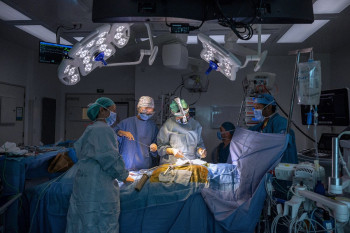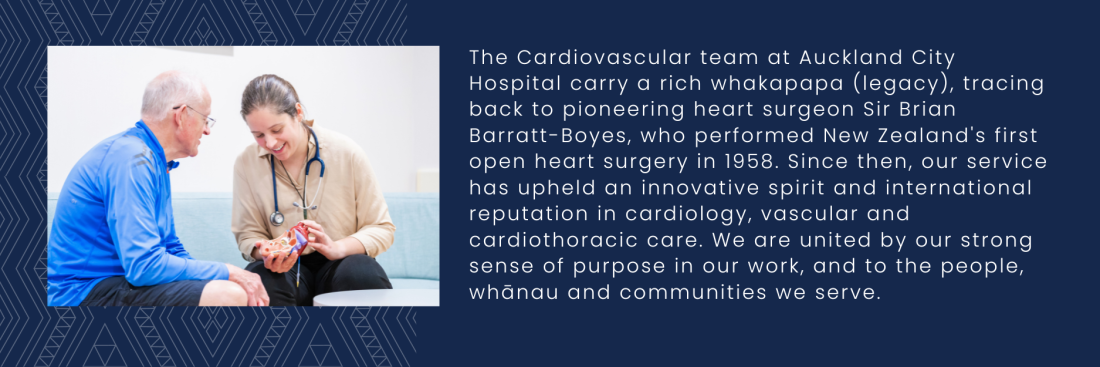 Cardiothoracic surgery involves the surgical treatment of organs inside the chest, mostly the heart and lungs.
Cardiothoracic surgery involves the surgical treatment of organs inside the chest, mostly the heart and lungs.
There are many different types of cardiothoracic surgery, ranging from heart valve replacement to a heart transplant to treating lung cancer, and more.
We are one of the largest cardiothoracic services in Australasia, performing around 1,200 heart surgeries per year. With a legacy spanning over 60 years, our service has earned global recognition as a leader in heart surgery innovation.
Who we are
We are a regional service, providing heart and lung surgery for patients across Auckland and Northland. We provide many specialist services and carry out highly complex surgeries for patients across Aotearoa New Zealand, including congenital heart surgeries (heart problems present at birth) and heart and lung transplants.
Care before and after surgery is delivered by a team of specialist doctors, skilled nurses and other health professionals, including pharmacists, physiotherapists, health psychologists, Māori health teams and Pacific health teams.
Where we are
Our inpatient ward is located in Ward 42, Level 4, Auckland City Hospital.
Referral
If you need heart or lung surgery, you will be referred by a specialist doctor.
Your appointment
If you are having a planned surgery, your healthcare team will meet with you and your whānau to explain how to prepare and what to expect during and after surgery, including how to best support your recovery. You may want to write down key questions to make sure you and your whānau have all the information needed to support your healthcare decisions.
